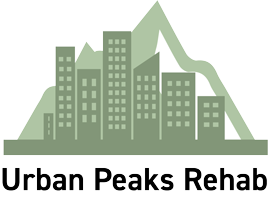Oftentimes, a person who struggles with addiction can find living life without the use of drugs or alcohol to be overwhelming. Small tasks such as taking a shower, going for a walk, or even grocery shopping can prove challenging. However, creating new patterns and routines including positive coping tools is a necessary and fulfilling addition to your recovery. The four properties of which recovery is based on are health, home, purpose and community. Improving these areas of your life will further you in your recovery and create a happier, more positive outlook for life. But how does someone identify the specific ways to improve their life in recovery? This week’s blog will focus on the first component of recovery and how to maintain a healthy and productive lifestyle.
Health
Managing Stress
The world can be a stressful place, but just because someone feels a stressful emotion, does not mean they must act upon it. Stress can lead to physical and mental ailments, such as cardiovascular disease, high blood pressure, depression, or anxiety. It is important to recognize stress as a trigger in recovery, and have a plan of action when those thoughts occur. This could include taking a short walk, listening to favorite music, or eating a healthy snack. Implementing a positive form of self- care during the stressful moments in life is crucial in creating new pathways in recovery. Finding a more constructive outlet for stress can lead away from relapse and towards healthier coping mechanisms.
One of the most valuable tools in managing stress in recovery is learning how to rest and how to ask for help. Often, people in recovery are under the impression that they must remain busy in order to keep from thinking about using drugs or alcohol. Although this may produce beneficial productivity, it can also put unnecessary strain on the mind and body. Your mind and your body will often show clear signs that you need to rest. Some of these signals may include a lack of focus, insomnia, chronic fatigue, chest pain, headaches, anxiety/depression, and even anger. Learning to recognize and honor where you need to be at, mentally and physically, is just as important as staying busy.
Communication
A crucial life skill is learning how to communicate with others clearly and effectively. This skill is essential in building healthy relationships with friends, family, and co-workers. Keeping clear and honest lines of communication is also central to learn how to set healthy boundaries and to manage emotions. Taking a moment to pause before responding to a question allows people to think about the answer, gauge the tone and pitch that are appropriate, and respond in a healthy manner. Assertive communication also allows personal viewpoints to be expressed, without being too aggressive or too passive.
One form of communication that is sometimes overlooked is self-talk. This refers to the thoughts and speech allowed around an individual, as well as the way that individual speaks to them. Most negative self-talk involves cognitive distortions, or simple ways that the mind convinces itself that something is true when it actually isn’t. Try reformatting a negative thought into a more positive version of itself. Listed below are some examples.
Instead of this…“I’m not good at this. I can’t do anything right.”
Try this…This might take some time to learn, but I can improve.
Instead of this… “There is no way this will work, I shouldn’t even try.”
Try this… I will approach this in a different way and do my best.
By simply changing negative self- talk to a language that is more upbeat and compassionate, growth and restoration have a chance to occur. It also encourages empathy, or being able to connect with another person’s experience. When a person is practicing empathy, they tend to be less judgmental and more open minded.
Mind and Body
The holistic approach of recovery incorporates treating the individual as a whole, focusing on not only the physical body but the mind as well. It is important to understand that the physical always impacts the mental, and vice versa. Using drugs and/or alcohol can take a large tool on the physical body, and many people in recovery understand that there may be some negative consequences for some time afterwards. Healthy eating, exercise and proper rest and relaxation are excellent ways to reach another level of self-care.
When asked, many people in recovery don’t know how to answer the question of “Who are you?” Get to know yourself! This is a perfect time to find a therapist, to talk, and to share about the struggles people face in recovery. Many times, addiction is connected strongly to other things such as anxiety, depression, and PTSD. Finding a positive and productive outlet in which to release tension and stress and gain other perspectives on problems can be one of the most instrumental tools in recovery.
